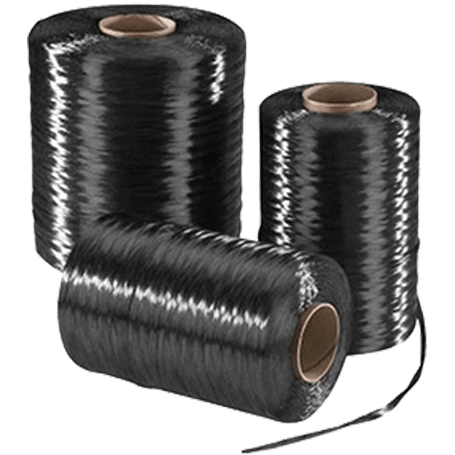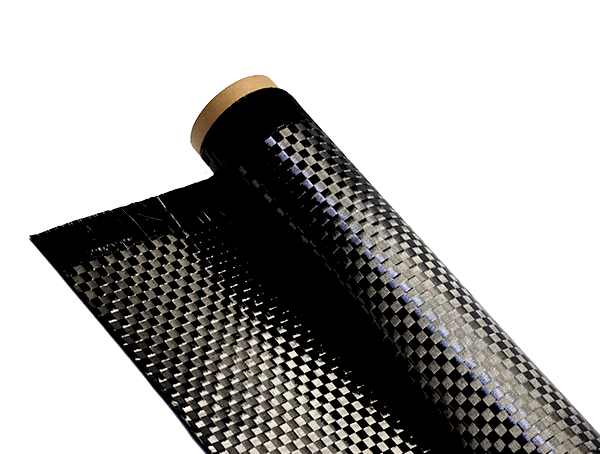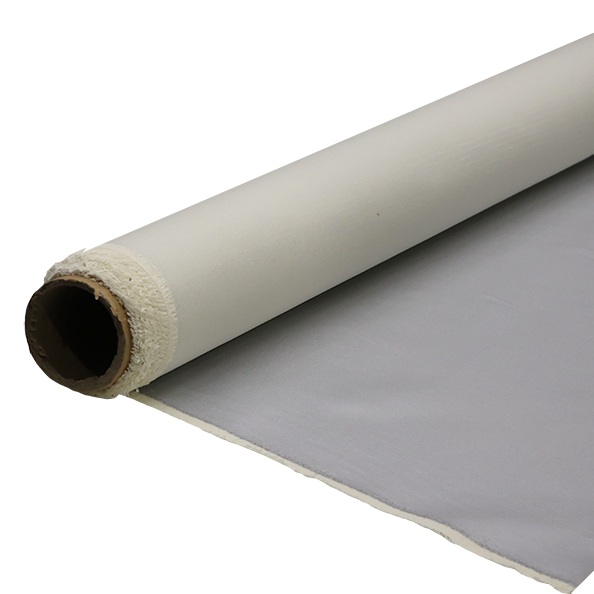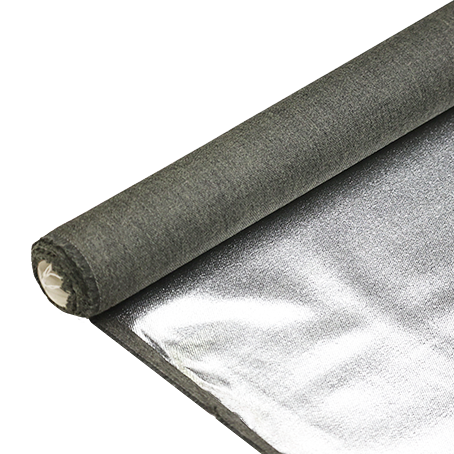New Nano-Enhanced Resin Increases Composite Durability
-
Table of Contents
“Revolutionizing Strength: New Nano-Enhanced Resin for Unmatched Composite Durability.”
The development of new nano-enhanced resin represents a significant advancement in composite materials, offering improved durability and performance. By incorporating nanoscale additives, this innovative resin enhances the mechanical properties of composites, making them more resistant to wear, impact, and environmental degradation. The result is a material that not only extends the lifespan of products but also broadens their application across various industries, including aerospace, automotive, and construction. This breakthrough in resin technology paves the way for stronger, lighter, and more resilient composite materials, addressing the growing demand for high-performance solutions in modern engineering.
Nano-Enhanced Resin: Revolutionizing Composite Durability
In recent years, the field of materials science has witnessed significant advancements, particularly in the development of composite materials. Among these innovations, the introduction of nano-enhanced resin has emerged as a groundbreaking solution that promises to revolutionize the durability of composites. This new resin incorporates nanoparticles into its matrix, which fundamentally alters the mechanical properties and overall performance of the composite materials. As industries increasingly seek materials that can withstand extreme conditions while maintaining lightweight characteristics, the advantages of nano-enhanced resin become increasingly apparent.
One of the primary benefits of nano-enhanced resin is its ability to improve the mechanical strength of composites. Traditional resins often struggle to provide the necessary durability required for demanding applications, such as aerospace, automotive, and construction. However, by integrating nanoparticles, such as silica or carbon nanotubes, into the resin, researchers have observed a marked increase in tensile strength and impact resistance. This enhancement is attributed to the nanoparticles’ ability to distribute stress more evenly throughout the material, thereby reducing the likelihood of failure under load. Consequently, manufacturers can produce lighter and more resilient components, which is particularly advantageous in sectors where weight reduction is critical for performance and efficiency.
Moreover, the incorporation of nano-enhanced resin also significantly improves the thermal stability of composite materials. In many applications, exposure to high temperatures can lead to degradation of the resin matrix, compromising the integrity of the composite. However, the unique properties of nanoparticles allow for better thermal conductivity and resistance to heat, ensuring that the composite maintains its structural integrity even in extreme environments. This characteristic is especially beneficial in industries such as aerospace, where components are often subjected to high thermal loads during operation. By utilizing nano-enhanced resin, manufacturers can create composites that not only endure these conditions but also extend the lifespan of their products.
In addition to mechanical and thermal enhancements, nano-enhanced resin also offers improved resistance to environmental factors. Traditional composites can be susceptible to moisture absorption, UV degradation, and chemical exposure, which can lead to a decline in performance over time. The incorporation of nanoparticles can create a more robust barrier against these environmental challenges, thereby enhancing the longevity of the composite. This increased resistance is particularly valuable in applications where materials are exposed to harsh conditions, such as marine environments or chemical processing facilities. As a result, industries can benefit from reduced maintenance costs and longer service intervals, ultimately leading to increased operational efficiency.
Furthermore, the versatility of nano-enhanced resin allows for customization to meet specific application requirements. By varying the type and concentration of nanoparticles used, manufacturers can tailor the properties of the resin to achieve desired outcomes. This adaptability opens up new possibilities for innovation in composite design, enabling the development of specialized materials that cater to niche markets or unique performance criteria. As research continues to explore the potential of nano-enhanced resin, it is likely that we will see even more applications emerge across various industries.
In conclusion, the advent of nano-enhanced resin marks a significant milestone in the quest for durable composite materials. By enhancing mechanical strength, thermal stability, and environmental resistance, this innovative resin not only meets the demands of modern applications but also paves the way for future advancements in material science. As industries continue to embrace these developments, the potential for improved performance and efficiency in composite materials is boundless, heralding a new era of durability and resilience in engineering and manufacturing.
The Science Behind Nano-Enhanced Resins in Composite Materials

The development of nano-enhanced resins represents a significant advancement in the field of composite materials, particularly in enhancing their durability and performance. At the core of this innovation lies the integration of nanomaterials, which are defined as materials with dimensions in the nanometer scale, typically ranging from 1 to 100 nanometers. These materials exhibit unique physical and chemical properties that differ markedly from their bulk counterparts, making them particularly valuable in the formulation of resins used in composites.
One of the primary mechanisms by which nano-enhanced resins improve composite durability is through the reinforcement of the resin matrix. When nanoparticles, such as silica, carbon nanotubes, or graphene, are incorporated into the resin, they create a network that enhances the mechanical properties of the composite. This network effectively increases the stiffness and strength of the material, allowing it to withstand greater stress and strain without failure. As a result, composites made with nano-enhanced resins can exhibit improved tensile strength and impact resistance, which are critical attributes in applications ranging from aerospace to automotive industries.
Moreover, the incorporation of nanomaterials can also enhance the thermal stability of composite materials. Traditional resins often suffer from degradation at elevated temperatures, which can limit their applicability in high-performance environments. However, nano-enhanced resins demonstrate improved thermal resistance due to the high surface area and unique thermal properties of the nanoparticles. This characteristic allows the composite to maintain its integrity and performance even under extreme thermal conditions, thereby extending its service life and reliability.
In addition to mechanical and thermal enhancements, nano-enhanced resins can also improve the barrier properties of composite materials. The presence of nanoparticles can create a more tortuous path for gases and liquids, effectively reducing permeability. This is particularly beneficial in applications where moisture or chemical exposure can lead to degradation of the composite. By minimizing the ingress of harmful substances, nano-enhanced resins contribute to the longevity and durability of the material, making them ideal for use in harsh environments.
Furthermore, the versatility of nano-enhanced resins allows for customization of composite properties to meet specific application requirements. By varying the type, size, and concentration of nanoparticles, manufacturers can tailor the resin formulation to achieve desired characteristics such as flexibility, toughness, or resistance to specific chemicals. This level of customization is not only advantageous for meeting the demands of various industries but also opens up new possibilities for innovative applications that were previously unattainable with conventional resins.
As research continues to advance in the field of nanotechnology, the potential for further improvements in nano-enhanced resins is vast. Ongoing studies are exploring the synergistic effects of combining different types of nanoparticles, as well as the development of new nanomaterials that could offer even greater enhancements. This evolving landscape promises to yield composites that are not only stronger and more durable but also lighter and more efficient, aligning with the growing demand for sustainable and high-performance materials.
In conclusion, the science behind nano-enhanced resins in composite materials underscores a transformative shift in material engineering. By leveraging the unique properties of nanomaterials, these resins significantly enhance the durability, thermal stability, and barrier performance of composites. As the industry continues to embrace these advancements, the future of composite materials looks promising, paving the way for innovations that will redefine performance standards across various sectors.
Applications of Nano-Enhanced Resins in Various Industries
The advent of nano-enhanced resins has marked a significant turning point in various industries, offering remarkable improvements in durability and performance. These advanced materials, which incorporate nanoparticles into traditional resin formulations, have found applications across a wide range of sectors, including automotive, aerospace, construction, and electronics. By leveraging the unique properties of nanomaterials, manufacturers are able to produce composites that not only exhibit enhanced mechanical strength but also improved resistance to environmental factors.
In the automotive industry, for instance, the integration of nano-enhanced resins has led to the development of lighter and more fuel-efficient vehicles. The use of these advanced composites allows for the reduction of weight without compromising structural integrity. As a result, manufacturers can achieve better fuel economy while simultaneously enhancing safety features. Furthermore, the improved durability of nano-enhanced resins means that components are less susceptible to wear and tear, ultimately extending the lifespan of vehicles and reducing maintenance costs.
Similarly, the aerospace sector has embraced nano-enhanced resins to improve the performance of aircraft components. The lightweight nature of these materials, combined with their superior strength-to-weight ratio, enables the production of parts that can withstand the extreme conditions encountered during flight. Additionally, the enhanced thermal stability of nano-resins contributes to better performance in high-temperature environments, which is crucial for aerospace applications. As a result, the use of these advanced materials not only enhances the safety and efficiency of aircraft but also contributes to the overall reduction of carbon emissions in the aviation industry.
In the construction sector, nano-enhanced resins are revolutionizing the way buildings and infrastructure are designed and constructed. These materials offer exceptional resistance to moisture, chemicals, and UV radiation, making them ideal for use in a variety of applications, from coatings to adhesives. For instance, the incorporation of nano-resins in concrete formulations has been shown to improve compressive strength and durability, leading to longer-lasting structures. Moreover, the ability to create self-healing concrete using nano-enhanced resins represents a significant advancement in construction technology, as it can automatically repair cracks and damage, thereby reducing the need for costly repairs.
The electronics industry is also witnessing the transformative impact of nano-enhanced resins. These materials are increasingly used in the production of circuit boards and other electronic components, where their excellent dielectric properties and thermal stability are highly valued. The incorporation of nanoparticles into resin formulations can enhance the electrical insulation properties, thereby improving the overall performance and reliability of electronic devices. As technology continues to advance, the demand for smaller, more efficient components will only increase, making nano-enhanced resins an essential part of future innovations in electronics.
In conclusion, the applications of nano-enhanced resins span a diverse array of industries, each benefiting from the unique properties these materials offer. From automotive and aerospace to construction and electronics, the integration of nano-resins is driving advancements that enhance durability, performance, and sustainability. As research continues to explore the potential of these innovative materials, it is likely that their applications will expand even further, paving the way for new solutions that address the challenges faced by various sectors. The future of manufacturing and material science is undoubtedly intertwined with the ongoing development of nano-enhanced resins, promising a new era of enhanced performance and durability across multiple industries.
Q&A
1. **What is nano-enhanced resin?**
Nano-enhanced resin is a type of composite material that incorporates nanoparticles to improve its mechanical properties, durability, and resistance to environmental factors.
2. **How does nano-enhanced resin increase composite durability?**
The addition of nanoparticles improves the interfacial bonding between the resin and the reinforcing fibers, reduces micro-cracking, and enhances overall strength, leading to increased durability of the composite material.
3. **What are the potential applications of nano-enhanced resin composites?**
These composites can be used in various industries, including aerospace, automotive, construction, and sports equipment, where high strength-to-weight ratios and enhanced durability are critical.The introduction of nano-enhanced resin significantly improves the durability of composite materials by enhancing their mechanical properties, resistance to environmental factors, and overall longevity. This advancement not only extends the lifespan of composite products but also opens new avenues for their application across various industries, including aerospace, automotive, and construction. The integration of nanotechnology in resin formulations represents a pivotal step towards more resilient and efficient composite materials.











